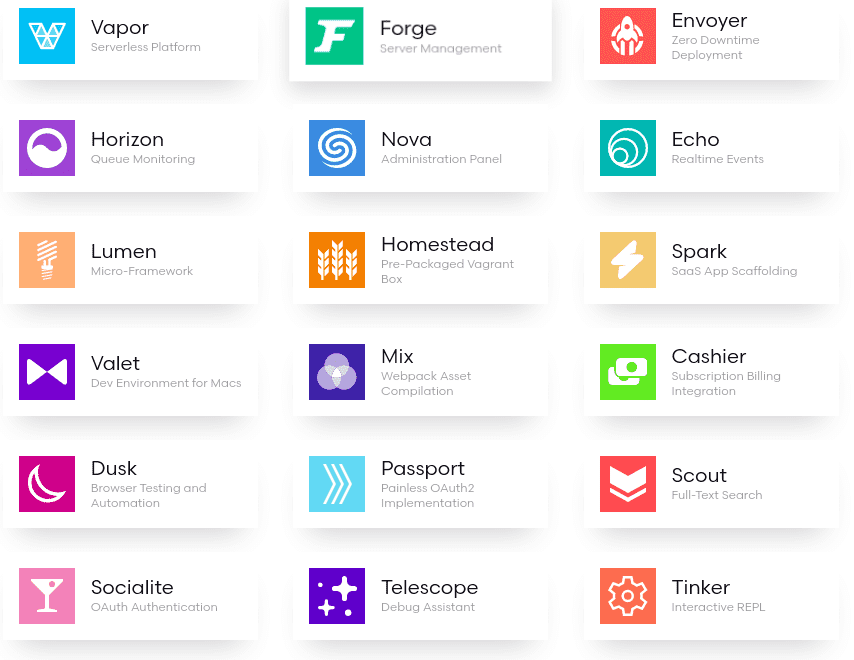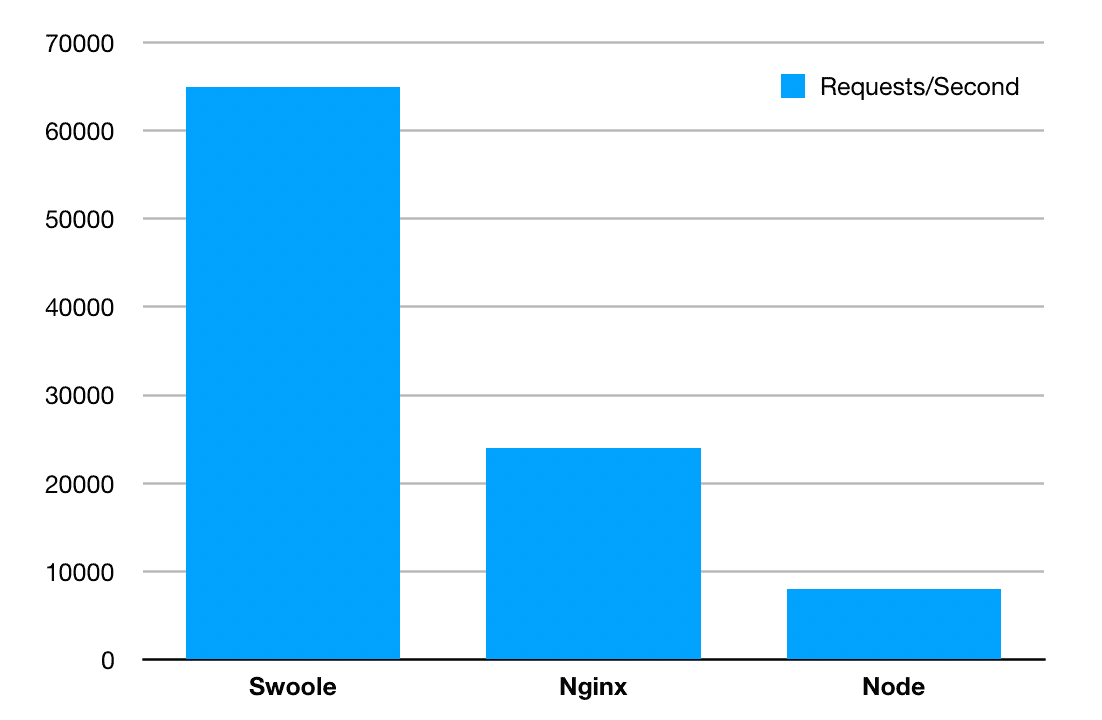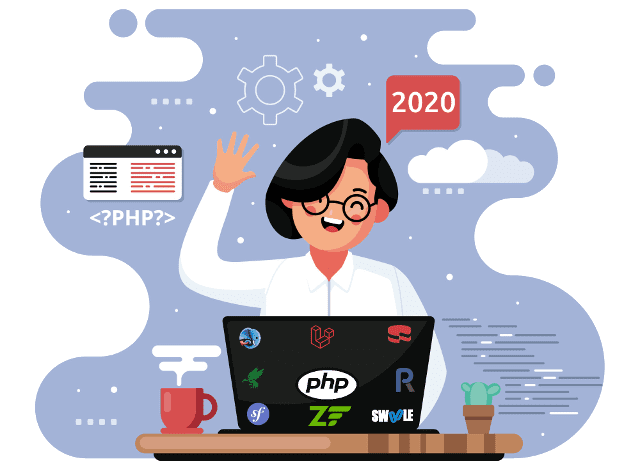2019 was a great year for PHP, but it won't be better than 2020 and 2021. In November 2019, PHP version 7.4 was released that includes important changes such as arrow, preload, typing, null assignment operator, FFI, the Spread operator and more. During this year, PHP 7.4 will be implemented in many Internet solutions with its new super powers, which will bring diverse and revolutionary ways of doing things. In late 2020, version 8 of PHP will be released and it will overflow the classic use of language to take it off the web to other areas such as artificial intelligence and data sciences, because a JIT engine is being incorporated into the core of PHP, therefore, 2021 presumes to be a very good year for this language.
Given this review, today I share the list of the best frameworks in PHP, taking into account their labor demand, popularity and community. Without further delay, the list below:
- Laravel is undoubtedly the best PHP framework, expressive syntax, orderly structure, separation of layers, a powerful ecosystem and the amount of labor demand, making it the best option, the current version is 6. X in semantic version, you can find Composer packages for almost everything, the development community offers solutions ranging from CMS to converting numbers into letters. Laravel has official packages such as Passport, Airlock, Socialite and others, which you can find in the official documentation. If your project requires scaling, exists Laravel Vapor, which is a cloud solution for deployment using ServerLess.

-
Symfony is the powerful classic PHP framework, Symfony has a powerful ecosystem of reusable components, of which Laravel is supplied, because the idea is not to reinvent the wheel but to improve it layer by layer. Symfony has a great demand because it is really robust, Twig the template engine is integrated into it, an aspect that pleases many developers.
-
CakePHP is another classic in frameworks, it was inspired by Ruby on Rails, it was released in 2005, so you can imagine it has a long way.
-
Phalcon is a very different framework from the others, Phalcon is literally a PHP extension written in the C language, as you will know it is possible to extend PHP functionalities through extensions or using FFI in PHP 7.4. The creators of Phalcon created a language called Zephir to facilitate the creation of extensions, so Phalcon was born. Because it is compiled and loaded into memory, this framework is very fast, compared to synchronous frameworks. Obviously, access to the terminal with root user permissions is required on the server where you will deploy Phalcon, due to the nature of its technology.
-
Zend is the official PHP framework, it is developed by the company responsible for the development of the PHP kernel called Zend Technologies.
All the previous frameworks are synchronous but PHP has evolved to have asynchronous frameworks in the style of NodeJs and Python Twister, their names below:
- Swoole is the most powerful asynchronous PHP framework, Swoole is even faster than NodeJs, it only works on Linux servers and is compiled in the C language, so you will need servers with root access. Swoole is awesome, if you have a Linux distro you have to try this monster. Almost all of the frameworks mentioned above have integrations with Swoole.

Image taken from ITDO.
-
ReactPHP is an incredible framework written in pure PHP, it works like an infinite loop that attends all the necessary events and dispatches them as it ends. His numbers are impressive, ReactPHP has important solutions based on him like Ratchet, Thruway and Predis \ Async.
-
Amp is another powerful framework similar to ReactPHP but with very different syntax, Amp can interoperate with ReactPHP, it is written in pure PHP so you can install it with Composer.
The TOPTAL guys have a very important article to choose between Laravel and Symfony, enjoy reading it too: Choosing Between Symfony and Laravel.
Do not forget to share. Some images were taken from Freepik.

